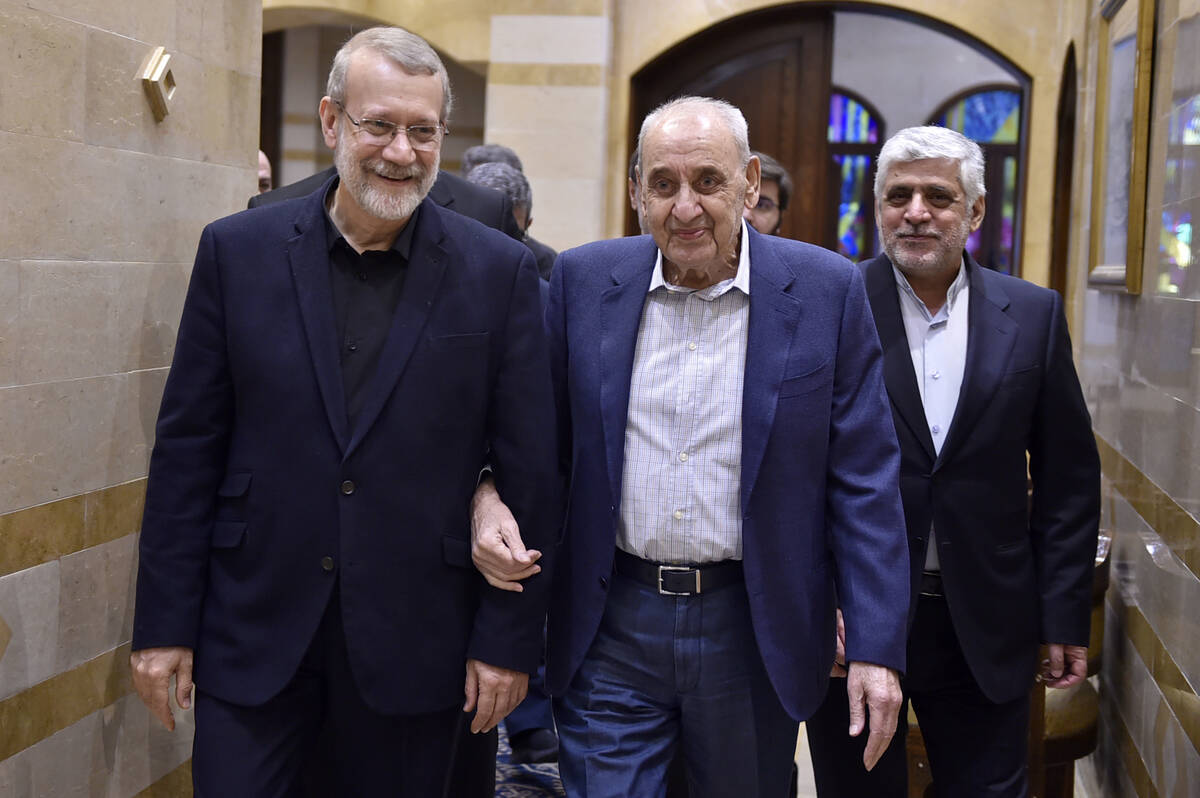Lebanon’s prime minister asks Iran to help secure cease-fire in Israel-Hezbollah war
BEIRUT — Lebanon’s caretaker prime minister on Friday asked Iran to help secure a cease-fire in the war between Israel and Hezbollah and appeared to urge it to convince the terrorist group to agree to a deal that could require it to pull back from the Israel-Lebanon border.
As a top adviser to Iran’s supreme leader Ali Khamenei visited Lebanon for talks, Lebanese officials said an American proposal for a cease-fire deal had been passed on to Hezbollah, aiming to end 13 months of exchanges of fire between Israel and the group.
Iran is a main backer of Hezbollah and for decades has been funding and arming the Lebanese terrorist group. Hezbollah began firing rockets into northern Israel the day after the Hamas-led terrorist attack in Israel on Oct. 7, 2023, ignited the war in Gaza — prompting exchanges between the two sides ever since.
Since late September, Israel dramatically escalated its bombardment of Lebanon, vowing to cripple Hezbollah and end its barrages in Israel. More than 3,400 people have been killed in Lebanon by Israeli fire, Lebanon’s Health Ministry says.
According to Lebanese media, U.S. Ambassador Lisa Johnson handed over a draft of a proposed cease-fire deal to Lebanese Parliament Speaker Nabih Berri, who has been leading the talks representing Hezbollah.
A Lebanese official confirmed that Beirut has received a copy of a draft proposal based on U.N. Security Council resolution 1701, which ended the last Israel-Hezbollah war, in the summer of 2006. A Lebanese politician said Hezbollah officials had received the draft, were studying it and would express their opinion on it to Berri. The politician, who knows the work of Hezbollah, and the official spoke on condition of anonymity because he was not authorized to speak to the media about the ongoing talks.
U.N. resolution 1701, among other things, holds that only the Lebanese army and U.N. peacekeepers should operate in southern Lebanon, meaning Hezbollah would have to end its presence there. That provision was never implemented. Lebanon accuses Israel of also violating the resolution by maintaining hold of a small, disputed border area and conducting frequent military overflights over Lebanon.
The Lebanese official did not give details other than to say Israel was insisting that some guarantees be included. The U.S. Embassy refused to either confirm or deny the reports.
In talks with Khamenei’s adviser, Ali Larijani, Lebanon’s caretaker prime minister, Najib Mikati, urged Iran to help implement resolution 1701. He said the Lebanese government wants the war to end and the resolution to be implemented “in all its details,” according to a statement on the talks issued by his office.
Mikati, who in recent weeks has become more critical of Iran’s role in Lebanon, also said the government wants Iran to help Lebanon’s national unity and not take any stance backing one party against another.
Iran’s backing for Hezbollah has helped the group, which is the most powerful faction among Lebanon’s Shiite Muslims, dominate the country’s politics the last decade.
After meeting Mikati and Berri, Larijani said his visit’s main aim was “to loudly say that we will stand by Lebanon’s government and people.”
Asked if he was trying to thwart U.S. cease-fire mediation, Larijani said, “We are not trying to blow up any effort, but we want to solve the problem and we will stand by Lebanon, whatever the circumstances.”


















